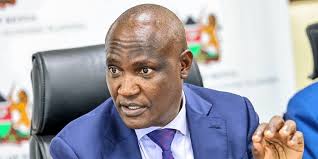The government has unveiled plans to roll out 37 national and county-level projects through the Public-Private Partnership (PPP) model in a bid to bridge Kenya’s infrastructure financing gap.
National Treasury and Economic Planning Cabinet Secretary John Mbadi said the approach will enable the state to channel more public funds towards critical social sectors such as health, education, and water while tapping private capital for large-scale developments.
According to the Treasury, Kenya requires about Ksh 560 billion annually to develop and maintain infrastructure but only allocates roughly Ksh 224 billion, leaving a funding gap of Ksh 336 billion each year. To close part of this deficit, the PPP Directorate aims to mobilize Ksh 293.6 billion in the current financial year for priority projects.
Flagship initiatives in the pipeline include the Galana Kulalu Food Security Programme, an Africa 50-backed high-voltage transmission line, the Nairobi-Mau Summit Road upgrade, and the Sabaki Water and Sanitation Project, which will boost water supply in Mombasa and Kilifi counties.
Mbadi said the PPP model offers a sustainable way of delivering infrastructure traditionally financed through public debt. “By leveraging private investment, the government can accelerate project delivery while freeing public resources for essential services,” he noted.
The Treasury has curated a portfolio of 37 projects to be undertaken under this framework, covering a wide range of sectors including transport, energy, water, and agriculture. Officials say the pipeline reflects a deliberate strategy to attract local and international investors with viable, revenue-generating ventures.
However, the rollout faces a key hurdle the Public-Private Partnership Act of 2021, which provides the legal and regulatory foundation for such ventures, is yet to become fully operational. This has slowed project turnaround times and limited investor confidence.
The Treasury is working to address the legal bottlenecks while streamlining approval processes to speed up implementation. Stakeholders argue that once the Act is fully enforced, Kenya could unlock billions in private investment to modernize its infrastructure without overburdening public finances.
With infrastructure seen as a critical driver of economic growth, the government hopes the small-scale PPP approach will not only plug financing gaps but also deliver timely, high-impact projects across the country.

